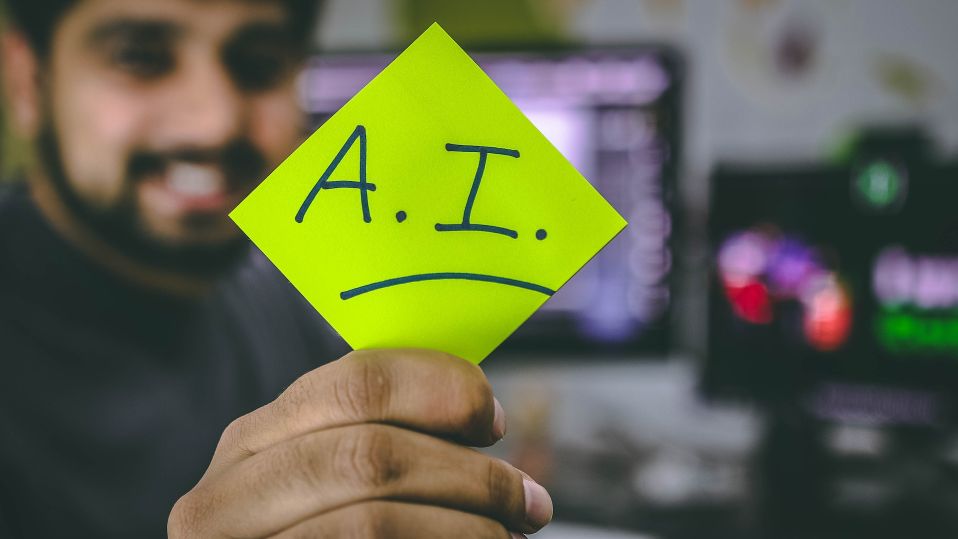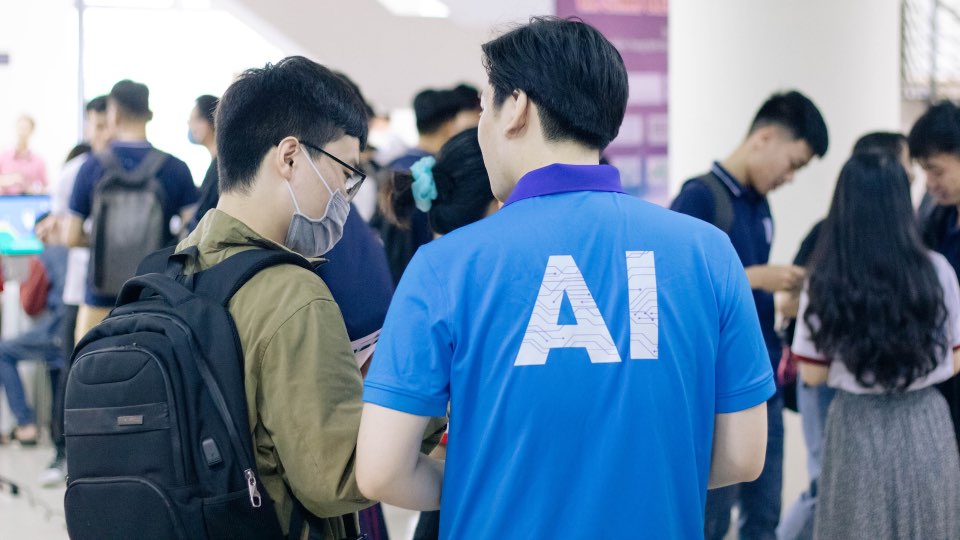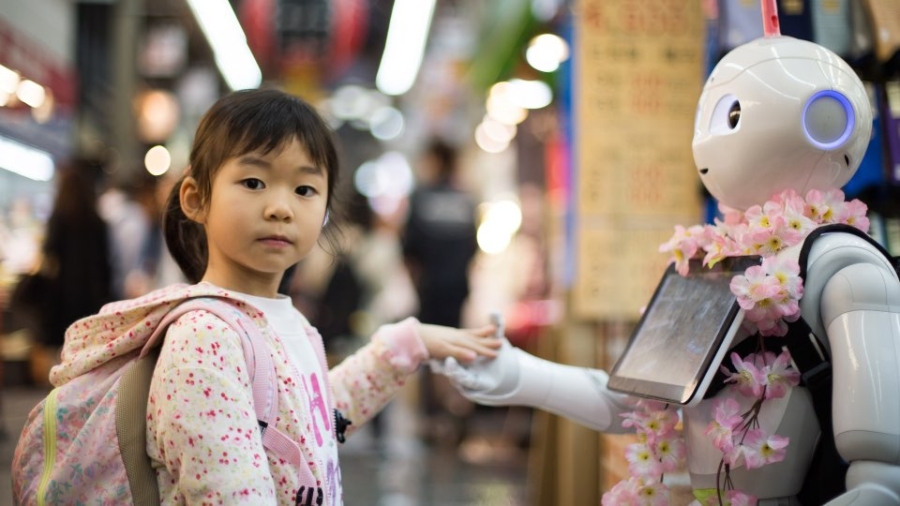In the ever-evolving landscape of technology, a remarkable clash is taking place that could reshape the future as we know it: the ultimate showdown between Artificial Intelligence AI vs. human mind. As we navigate this era of rapid innovation, it becomes increasingly important to understand the dynamics of this duel and explore how it might impact our lives. Will machines surpass human creativity, or is there an innate quality that makes human ingenuity unbeatable? This beginners’ guide aims to demystify the ongoing battle and encourage you to unlock your creative potential in the midst of this groundbreaking competition.
Understanding the Players: AI’s Rise and Human Brilliance
To comprehend the implications of the ultimate showdown, let’s first delve into the strengths of the contenders. Artificial Intelligence, often characterized by its ability to learn and adapt, has demonstrated incredible feats, from mastering complex games to driving cars autonomously. On the other side, human brilliance has brought about the most awe-inspiring creations, ranging from timeless works of art to groundbreaking scientific discoveries. Both entities possess unique strengths, setting the stage for an intriguing face-off.
The Role of Creativity: Humans as the Pinnacle of Innovation
Creativity, the essence of innovation, is a domain where humans have traditionally excelled. The human mind’s ability to connect disparate ideas, imagine the unimaginable, and express emotions through various mediums is unparalleled. While AI systems can generate content based on patterns and data, the genuine touch of human creativity remains unmatched. The intricate dance of emotions, cultural nuances, and personal experiences woven into human creations is a testament to our unique position in the creative realm.
AI’s Strides in Creativity: Can Machines Truly Compete?
As AI evolves, its foray into creative realms raises intriguing questions. Can machines truly comprehend the essence of creativity and produce art that resonates with human emotions? The strides made by AI in music composition, visual arts, and even writing suggest that we are at the cusp of a transformative era. AI-generated paintings are displayed in prestigious galleries, AI-authored music is hitting the airwaves, and AI-written articles are becoming indistinguishable from those crafted by human hands. The lines between artificial and human creativity are blurring, prompting us to reevaluate the very nature of innovation.
Nurturing Human Creativity in the Age of AI
As the ultimate showdown unfolds, nurturing and enhancing human creativity becomes imperative. While AI can mimic certain aspects of creativity, the deeply personal and subjective nature of human expression remains a stronghold. Embracing our creativity involves exploring new horizons, pushing boundaries, and leveraging technology as a tool rather than a replacement. In a world increasingly influenced by AI, fostering the human touch in creativity becomes not only a choice but a responsibility.

The Synergy of AI and Human Creativity: A Harmonious Future
Rather than framing the competition as a winner-takes-all scenario, envisioning a future where AI and human creativity complement each other offers a more optimistic perspective. The integration of AI tools into creative processes can amplify our capabilities, providing new avenues for exploration and expression. Human-AI collaboration holds the potential to birth unprecedented works of art, literature, and innovation, where the amalgamation of artificial intelligence and human intuition results in a harmonious symphony of creativity.
Unleashing Your Creative Potential: A Call to Action
In the midst of this ultimate showdown, an essential aspect often overlooked is the individual’s role in unlocking their creative potential. Embrace the challenge, explore uncharted territories, and experiment with the fusion of human creativity and AI assistance. Whether you are an artist, a writer, a musician, or someone passionate about any form of expression, the evolving landscape invites you to be an active participant in shaping the narrative. Your unique perspective and creativity can contribute to the ongoing dialogue between AI and human ingenuity.
Embracing Change: Adapting to the Creative Landscape
Change is inevitable, and the fusion of AI and human creativity is a testament to the dynamic nature of progress. Embracing this change requires an open mind, a willingness to learn, and the courage to adapt. As the landscape evolves, so should our approach to creativity. Rather than fearing the potential displacement of human creativity by AI, let’s view it as an opportunity to redefine and elevate our creative endeavors.

AI vs. Human: A Comparative Analysis Across Key Parameters
As we unravel the intricacies of the ultimate showdown between Artificial Intelligence (AI) and the human mind, it’s essential to conduct a comprehensive comparison across various parameters. Each contender brings a unique set of strengths to the table, setting the stage for a fascinating exploration of their capabilities.
| Parameters AI vs. Human | Artificial Intelligence (AI) | Human Mind |
|---|---|---|
| 1. Learning and Adaptability: | AI systems excel in rapid learning and adaptation. Machine learning algorithms enable AI to process vast amounts of data, recognize patterns, and refine their performance over time. The ability to adapt quickly to new information gives AI a notable edge in tasks that demand continuous learning. | While humans may not match the speed of AI in processing data, their adaptability is characterized by a deep understanding of context, emotional intelligence, and the capacity to learn from diverse experiences. The human mind can adapt to novel situations, draw connections between seemingly unrelated concepts, and evolve through a combination of cognition and emotion. |
| 2. Creativity: | AI has made significant strides in creative domains, producing music, art, and literature. Generative models can mimic certain aspects of human creativity by analyzing existing works and creating new content. However, the creativity generated by AI often lacks the nuanced depth and emotional resonance inherent in human expression. | Human creativity is marked by a profound ability to synthesize emotions, cultural influences, and personal experiences. The human mind can ideate, innovate, and create in ways that transcend mere pattern recognition. The subjective and deeply personal nature of human creativity remains a formidable force. |
| 3. Collaboration: | AI excels in collaborative endeavors, particularly in tasks that require precision, speed, and large-scale data processing. Collaborative robots, for instance, can work alongside humans in manufacturing, healthcare, and other industries, enhancing efficiency and productivity. | Human collaboration extends beyond the realm of task-oriented activities. The ability to collaborate creatively, share ideas, and build upon collective knowledge is a hallmark of human ingenuity. Human collaboration is driven not only by efficiency but also by a shared vision and a collective pursuit of innovation. |
| 4. Emotional Intelligence: | While AI systems can be programmed to recognize and respond to emotions, they lack genuine emotional understanding. Emotional intelligence in AI is often a simulated response based on predefined algorithms rather than a true comprehension of the complexity of human emotions. | Human emotional intelligence is intricate and multifaceted. It involves empathy, intuition, and the ability to navigate and understand the emotions of others. Emotional intelligence plays a pivotal role in various aspects of human interaction, from personal relationships to leadership and collaboration. |
| 5. Ethical Considerations: | Ethical concerns surrounding AI include issues of bias in algorithms, job displacement, and the potential misuse of advanced technologies. The responsibility to ensure ethical AI development lies with human programmers and policymakers. | Humans bring ethical considerations into decision-making naturally, drawing upon a moral compass shaped by societal norms, empathy, and a sense of justice. The ability to navigate complex ethical dilemmas involves a level of discernment and conscience that is intrinsic to human nature. |
| 6. Innovation: | AI is a driving force behind technological innovation, revolutionizing industries and contributing to advancements in healthcare, finance, and more. The speed at which AI can process information and generate insights fosters an environment conducive to rapid innovation. | Human innovation, rooted in curiosity and imagination, has led to groundbreaking discoveries and inventions throughout history. The capacity to think beyond existing paradigms, question the status quo, and envision entirely new possibilities is a testament to the human spirit of innovation. |
In conclusion, the comparison between AI and the human mind across these parameters highlights the strengths and limitations of each. While AI excels in certain domains, human qualities such as creativity, emotional intelligence, and ethical discernment remain unparalleled. The ultimate winner in the showdown between AI and humans may not be determined by superiority but by the potential for collaboration, where the strengths of both entities harmoniously contribute to a future marked by innovation and progress.
Conclusion: A Future Shaped by Collaboration
In the ultimate showdown between AI and the human mind, the future winner may not be a singular entity but a collaboration between the two. The evolving relationship between artificial intelligence and human creativity is paving the way for a future where innovation knows no bounds. As we navigate this transformative era, remember that the essence of creativity lies within you, waiting to be unleashed and woven into the fabric of a future shaped by collaboration, synergy, and limitless imagination.
